A New Polytechnic University in Los Angeles, California, USA, Answers the Need for a Faithful, STEM-based Science Education
By ITV staff with Zenit
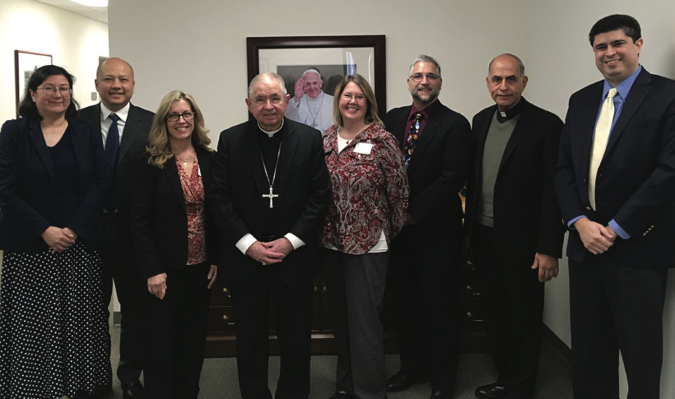
(Third from left) President Jennifer Nolan, Ph.D., with Los Angeles Archbishop José Gomez, in a photo with the staff of the new Polytechnic University (CPU)
Catholic Polytechnic University (CPU) in Los Angeles, California, USA, was born of the desire of parents who insisted on a faithful Catholic college education for their children, but were not necessarily looking for the liberal-arts curriculum that virtually every orthodox Catholic school offered.
“For centuries, Catholics have provided exceptional Liberal Arts higher education, and yet the divide between faith and science/technology has grown,” says CPU President Jennifer Nolan, Ph.D. “Formation of young Catholics in faith and science is essential for the New Evangelization.” Dr. Nolan is also a co-founder of the school, which is still in the process of formation, and has just begun offering online career classes which award a certificate of completion but currently do not count toward a degree. The course offerings include Project Management, App Development, User Experience, Business Technology and Cybersecurity. Dr. Nolan spoke to Zenit news agency about the need for an authentically Catholic technical university, and CPU’s aspirations to fill that need.
What is the vision of your university?
PRESIDENT JENNIFER NOLAN: Catholic Polytechnic University is a Catholic institute of technology. Our mission is to form scientists, engineers, academics, and technology leaders with expertise in business and theology. CPU combines a deep quest for STEM and business expertise with the enduring truths of the Catholic faith.
Where are you now in the formation process?
PRESIDENT NOLAN: CPU has devout Catholic NASA scientists and engineers, successful corporate executives, and top theologians on our team. Our first undergraduate program is planned for Fall of 2021 or Spring 2022. We have a Facilities Use Agreement with Don Bosco Technical Institute in Rosemead, California for the use of their STEM-focused campus (https://www.boscotech.edu) when Covid-19 restrictions permit in-person instruction. And we are forming partnerships with corporations for student apprenticeships.
Tell us about how Catholic Polytechnic University came to fruition.
PRESIDENT NOLAN: Catholic Polytechnic University (CPU) was born out of need. For centuries, Catholics have provided exceptional Liberal Arts higher education, and yet the divide between faith and science has grown. According to Pew Research Center, many ex-Catholics even cite this perceived disconnect as a primary cause for leaving the Church. Formation of young Catholics in faith and science is essential for the New Evangelization.

Do you have personal experience with the gap between faith and STEM degrees?
PRESIDENT NOLAN: Yes, two of my kids would like to be scientists and engineers, so where in the Western U.S. will they go to college? To a secular college where they may be talked out of their faith, or to a Liberal Arts Catholic college where science, engineering, and technology are not the focus? I find other Catholic parents and students struggle with the same conundrum. We Catholic parents seek an affordable, STEM-focused, Newman Guide-recommended college for our kids.
How is CPU unique?
PRESIDENT NOLAN: It was created to integrate faith and reason, as most Catholic universities are. But CPU’s emphasis is on providing STEM and business degrees, grounded in Catholicism. Its students will be leaders in high science/technology fields, academia, and the Church. CPU’s purpose also includes its commitment to an affordable and high-quality STEM education. Because of this core principle, CPU is to be accessible to all Catholics and all people regardless of faith, income, and wealth status. In doing so, we embrace the innate dignity and abilities of the human person.
How has the Archdiocese of Los Angeles supported you?
PRESIDENT NOLAN: After developing a core team and strategic plan, we met with Archbishop José Gomez and his team in 2020, and the Archbishop was very supportive and enthusiastic. He gave us his blessing, an official letter of endorsement for our website and fundraising efforts, and promised a member of his staff to be on our Board of Directors. We are so grateful for the support of Archbishop Gomez.
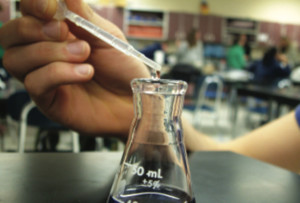
How will you uphold Catholic tradition?
PRESIDENT NOLAN: We strive to be faithful to the Magisterium and principles that St. John Paul II outlined in Ex Corde Ecclesiae, while furthering advances in science, engineering, and technology.
These efforts are part of our plan to create a “sustainable Catholic” institution, to ensure that it never loses its Catholic identity.
How does the university promote and demonstrate the complementarity of the Catholic faith and science?
PRESIDENT NOLAN: As Vatican Astronomer Br. Guy Consolmagno once said, “The more we learn of the created, the more we learn of the Creator.” This simple sentence so aptly describes how science can lead people closer to God through the investigation of His creation.
At Catholic Polytechnic University, we plan to not only incorporate faith into every STEM course, but we also plan to have the Catholic sacraments, Masses, Adoration, and priests and nuns or a religious order on campus. I call it, “Catholic Immersion,” similar to language immersion, where the faith is joyfully, deeply, and richly experienced.
Further, we already have top theologians designing our faith and science curriculum.
Our students will not only be STEM innovators, but also experts in the ethics of all they do, so they can guide innovation toward the ultimate good of humanity. Even Fr. Robert Spitzer of the Magis Center has donated curriculum for our use.

Have the words of the recent Popes on this complementarity also served as inspiration?
PRESIDENT NOLAN: All three of our recent Popes have written on the complementarity of faith and science, giving us inspiration. We first are guided by Ex Corde Ecclesiae, Pope St. John Paul II’s seminal work on the nature of a Catholic University. Specifically, he states: “In the world today, characterized by such rapid developments in science and technology, the tasks of a Catholic University assume an ever-greater importance and urgency. Scientific and technological discoveries create an enormous economic and industrial growth, but they also inescapably require the correspondingly necessary search for meaning in order to guarantee that the new discoveries be used for the authentic good of individuals and of human society as a whole. If it is the responsibility of every University to search for such meaning, a Catholic University is called in a particular way to respond to this need…”
In his encyclical, Caritas in Veritate, Pope Emeritus Benedict states: “Technologically advanced societies must not confuse their own technological development with a presumed cultural superiority, but must rather rediscover within themselves the oft-forgotten virtues which made it possible for them to flourish throughout their history. Evolving societies must remain faithful to all that is truly human in their traditions, avoiding the temptation to overlay them automatically with the mechanisms of a globalized technological civilization. In all cultures there are examples of ethical convergence, some isolated, some interrelated, as an expression of the one human nature, willed by the Creator; the tradition of ethical wisdom knows this as the natural law.”
Pope Francis was also an inspiration in Laudato Si in which he exhorts people to combine the search for truth, beauty and justice with the advances of technology. In the encyclical, he states: “We are the beneficiaries of two centuries of enormous waves of change: steam engines, railways, the telegraph, electricity, automobiles, airplanes, chemical industries, modern medicine, information technology and, more recently, the digital revolution, robotics, biotechnologies and nanotechnologies…Never has humanity had such power over itself, yet nothing ensures that it will be used wisely, particularly when we consider how it is currently being used.”
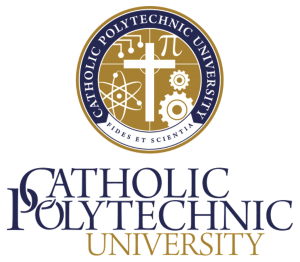 How can I learn more or get involved?
How can I learn more or get involved?
PRESIDENT NOLAN: If you want to help out, please go to our website catholicpolytechnic.org. We are in need of benefactors, corporations for partnerships, applications from potential Catholic professors, and of course students. Potential students can fill out our website survey to get on our mailing list. Catholic Polytechnic is a 501(c)(3) non-profit, so donations are tax-deductible. Please pray for Catholic Polytechnic University!


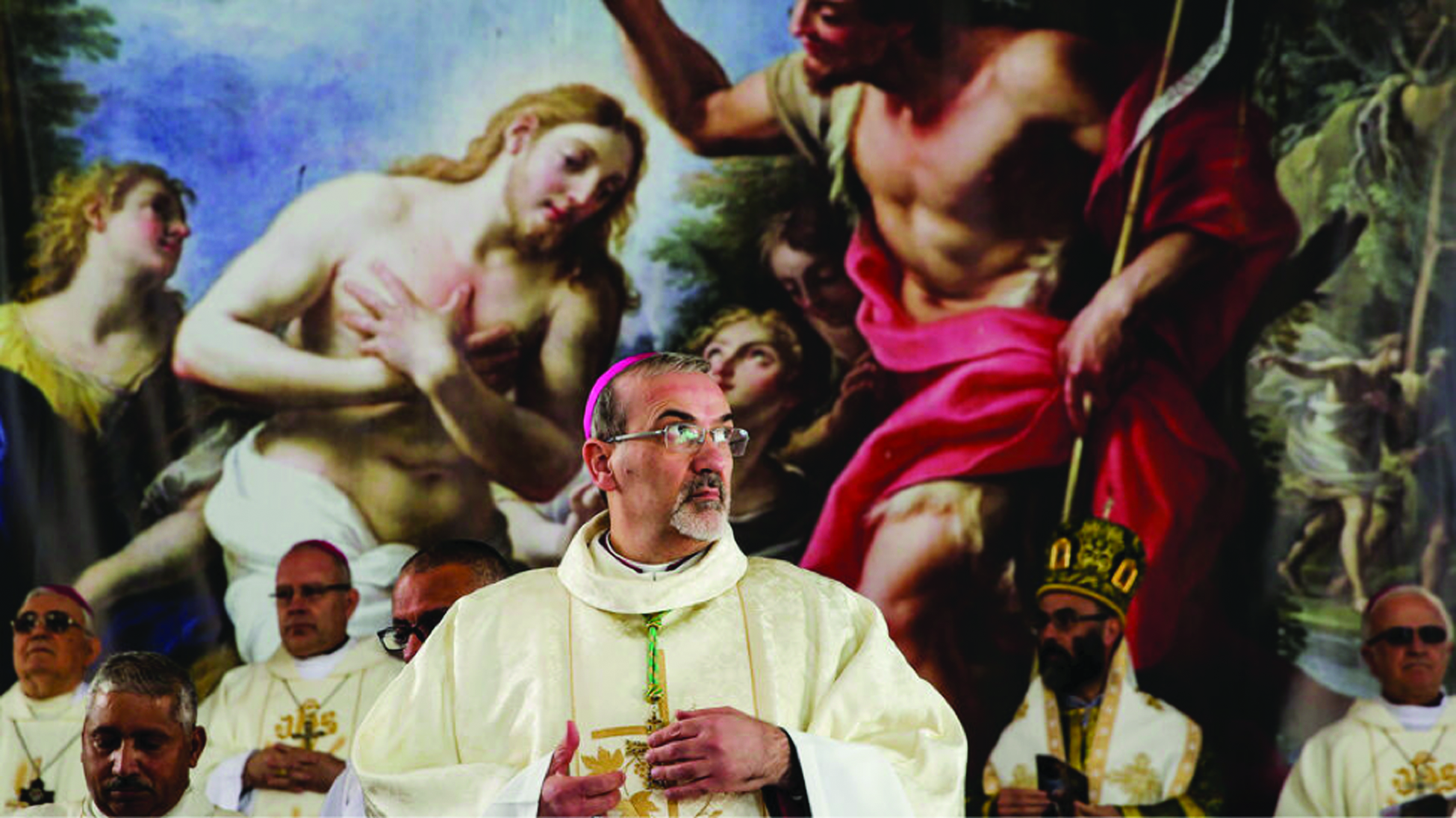
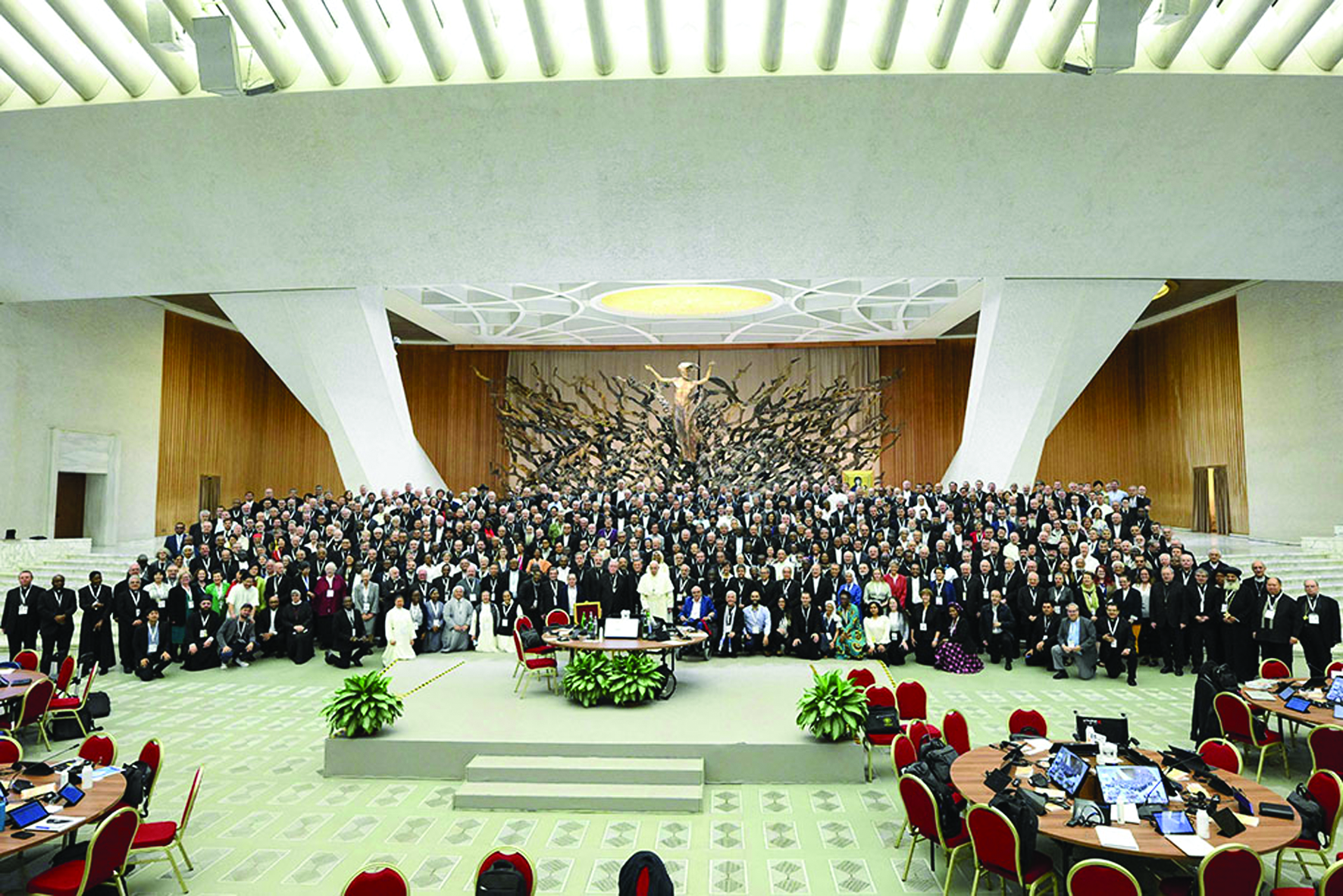
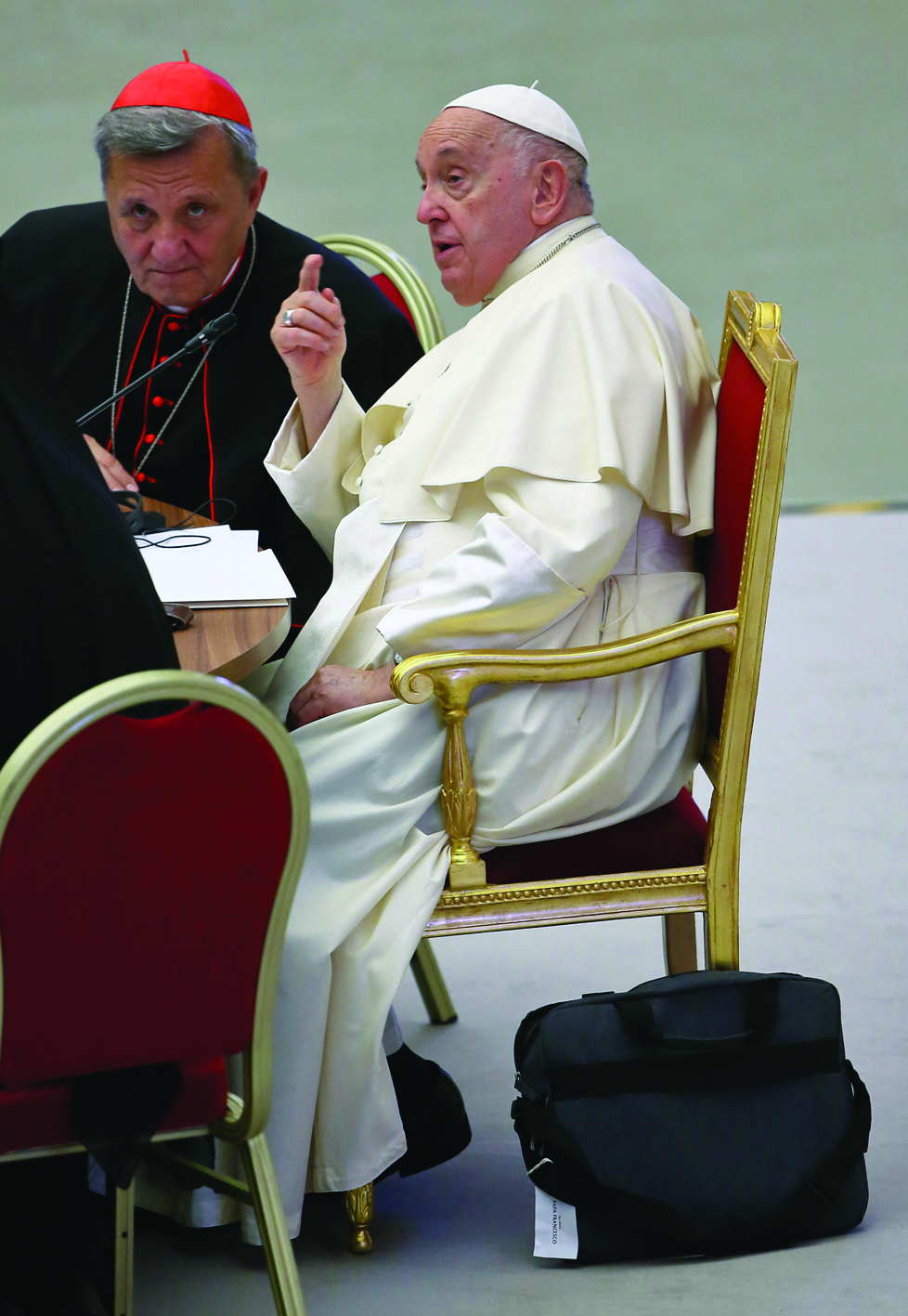
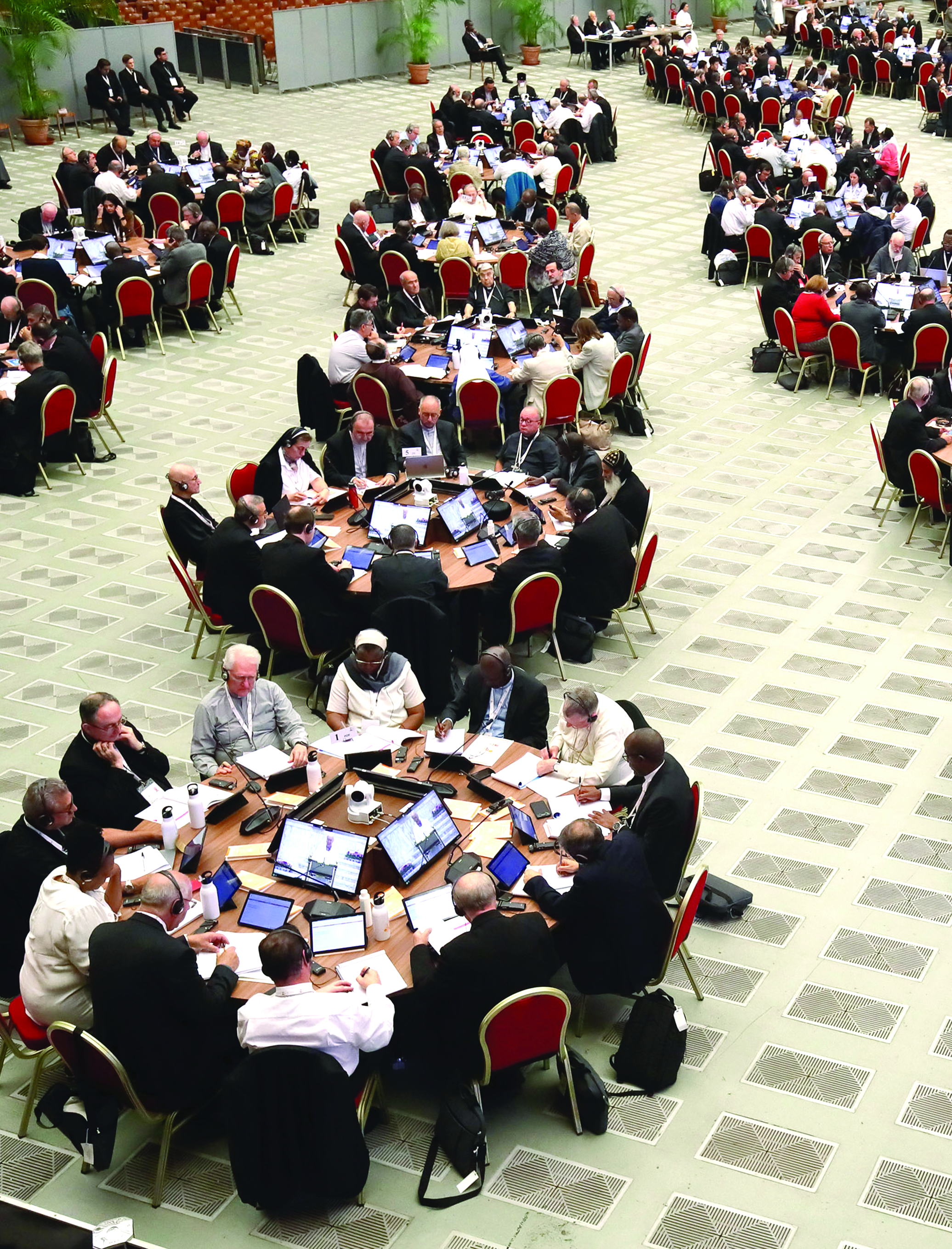
Facebook Comments